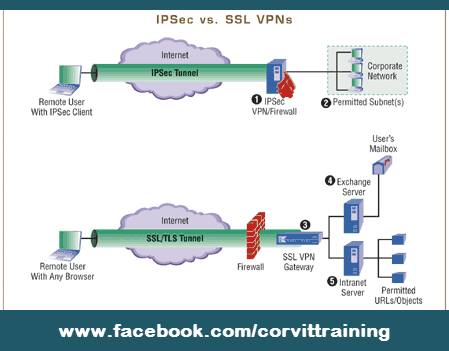Generally, IPSec requires installing IPSec 3rd party client Application/ Hardware in client PC, and the user has to start the application to start the secure connection. This can impact an organization financially, as they have to buy licenses for these VPN clients. But for SSL VPN, it is not necessary to install separate application. Almost all the modern standard web browsers can use SSL Connections.
In IPSec communication, once client is authenticated to the VPN he has the full access of the private network, which may not be necessary, but in SSL VPNs, it provides more precious access control; at the beginning of the SSL authentication, it creates tunnels to specific applications using sockets rather than to the whole network. Also, this enables to provide role based access (different access rights for different users).
One Disadvantage of SSL VPN is that, we can use mainly web based applications using SSL VPN. For some other applications, though it is possible to use by web-enabling it adds some complexity for the application.
Due to providing access only for Web-Enabled Applications, SSL VPN is difficult to use with applications like file sharing and printing, but IPSec VPNs provide highly reliable printing and file sharing facilities.
SSL VPNs are becoming more popular due to ease of use and reliability but, as we mentioned above, it is not reliable with all the applications. Therefore, selection of the VPN (SSL or IPSec) totally depends on the application and requirements.
Ref: Corvit Training
